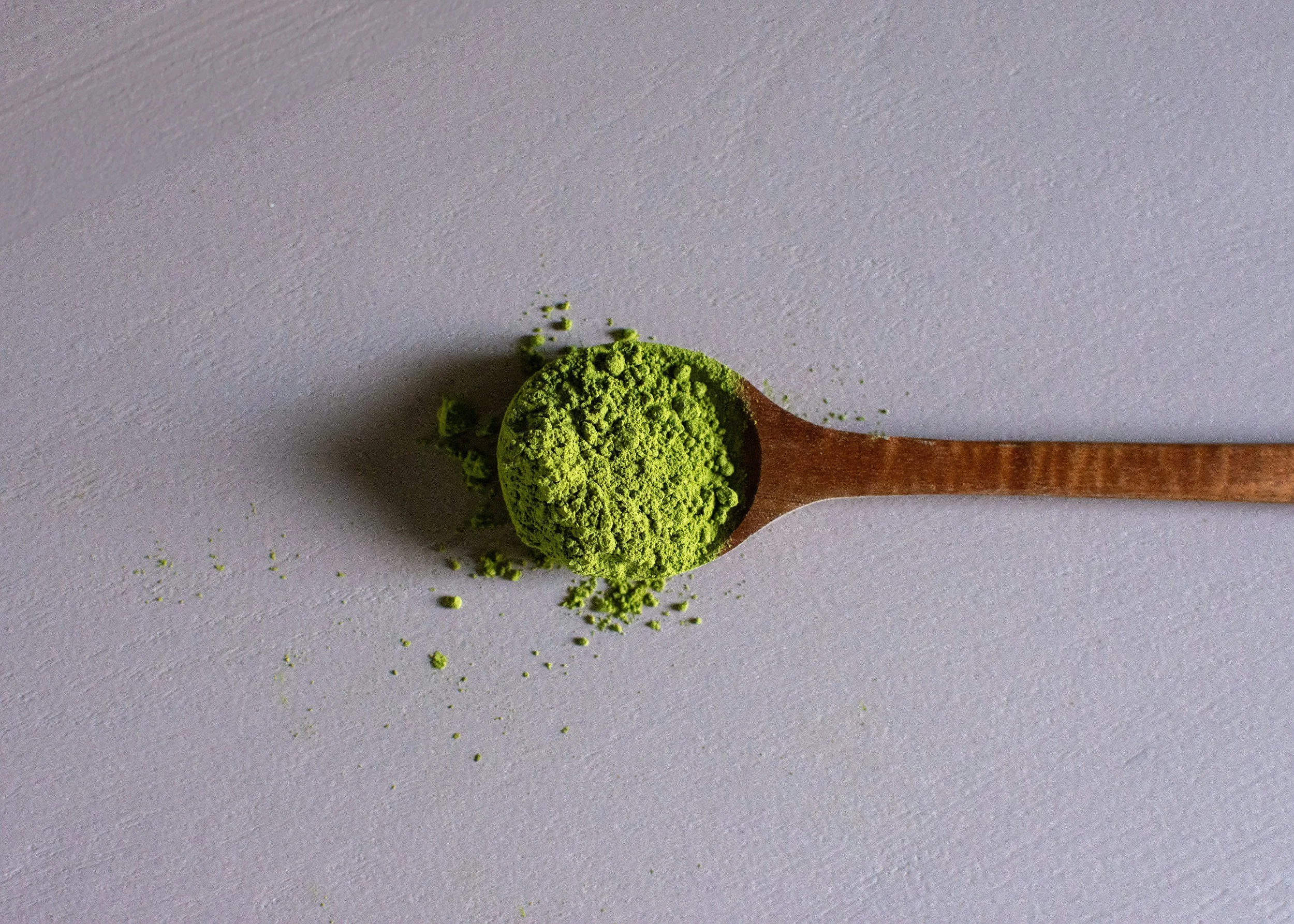Matcha vs Coffee: Which One Should You Choose?
If you’re torn between sticking with your daily coffee or switching to ceremonial matcha, you’re not alone. Both drinks boost energy and help you start the day, but they do it in very different ways.
Here’s everything you need to know — including caffeine levels, flavour, benefits, and how much matcha you should actually drink.
What is matcha?
Matcha is a finely ground Japanese green tea made from shade-grown leaves. Unlike traditional tea, where you brew and discard the leaves, matcha is whisked directly into water — so you consume the entire leaf.
That’s why matcha is more nutrient-dense, smoother, and richer in antioxidants than regular green tea ( think about it as an apple - there is more value in having a whole apple rather than apple juice right - same is matcha and regular green tea )
In a nutshell matcha:
Made from whole tea leaves
High antioxidants (especially EGCG)
Smooth energy + mental clarity
Traditional drink from Japanese tea culture
What does matcha taste like?
Matcha has a unique flavour profile:
Smooth
Slightly sweet
Creamy
Fresh and grassy
Umami-rich
Good-quality matcha should not be bitter. The brighter the green colour, the sweeter and smoother the taste.
Does matcha contain caffeine?
Yes — matcha does contain caffeine, but it behaves very differently from coffee.
A typical serving of matcha (½–1 tsp) contains:
| Drink | Approx Caffeine per Serving |
|---|---|
| Matcha tea | 60–70 mg |
| Coffee | 90–120 mg |
| Green tea | 25–30 mg |
| Espresso | 60–90 mg |
So matcha has less caffeine than coffee, but it does contain a lot of caffeine per serve.
Why matcha’s caffeine feels different?
Because of the L-theanine, the caffeine is released slowly. For the body it translates into:
✔ sustained energy
✔ fewer jitters
✔ no crash
✔ calmer focus
How much matcha should you consume?
Most people feel their best with:
1–2 servings (½–1 tsp each) per day
This gives you enough antioxidants and L-theanine to feel the benefits without overdoing the caffeine.
You can safely drink up to 2–3 cups, but if you’re sensitive to caffeine, start with less.
Best daily amount: 1–2 cups
Avoid drinking matcha on an empty stomach if sensitive
Choose quality matcha for best experience
Matcha tea benefits vs coffee
Matcha and coffee both boost energy, but matcha brings additional wellness benefits thanks to its antioxidants and calming amino acids.
| Benefit | Matcha | Coffee | ||||||||||||||||||||||||||||||
|---|---|---|---|---|---|---|---|---|---|---|---|---|---|---|---|---|---|---|---|---|---|---|---|---|---|---|---|---|---|---|---|---|
| Energy release | Slow + stable | Fast spike, then crash | ||||||||||||||||||||||||||||||
| Calmness | High (L-theanine) | Low | ||||||||||||||||||||||||||||||
| Antioxidants | Extremely high (EGCG) | Medium | ||||||||||||||||||||||||||||||
| Jitters | Rare | Common | ||||||||||||||||||||||||||||||
| Anxiety | Less likely | More likely | ||||||||||||||||||||||||||||||
| Teeth staining | Minimal | High | ||||||||||||||||||||||||||||||
| Acidity | Low | High
Rich in antioxidantsMatcha contains exceptionally high levels of catechins, especially EGCG — one of the most powerful antioxidants found in nature.
Coffee contains antioxidants too, but nowhere near matcha’s concentration. Matcha regulates energyThanks to the caffeine + L-theanine combo, matcha gives steady, reliable energy without the rollercoaster:
Coffee hits fast, but drops just as fast — which often leads to craving more.
Matcha helps you ground and feel present in the momentOne reason matcha is used in Japanese tea ceremonies is its centering effect. L-theanine encourages alpha brain waves — the same ones linked to meditation. You may feel:
Coffee stimulates, but doesn’t calm — so you don’t get this grounding effect. Matcha doesn’t have the same caffeine addictionCoffee’s fast-release caffeine can cause:
Matcha gives a softer, gentler stimulation — so you avoid the intense withdrawal cycle. Why matcha is easier on your system: Matcha is better for teeth healthMatcha is:
Coffee, on the other hand, is one of the biggest culprits for enamel erosion and staining.
Matcha helps with mental clarityBecause matcha contains both caffeine and L-theanine, it improves:
And it does this without the jittery over-stimulation coffee often creates. In a nutshell:
If you love coffee, you don’t have to quit it — but matcha offers a smoother, more balanced alternative that supports wellness, clarity, and calmer energy. Looking for loose leaf low caffeine options? Not sure where to start? Check out our information about genmaicha tea benefits Previous
Previous
Hojicha vs matchaNext
Next
8 health benefits of matcha |

